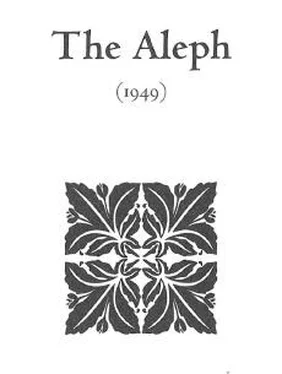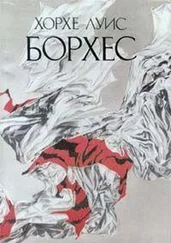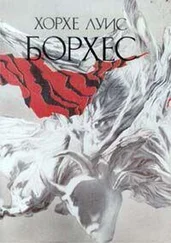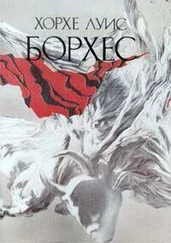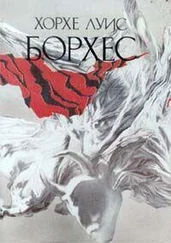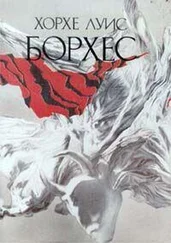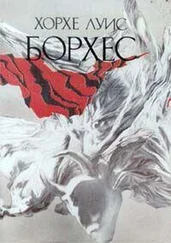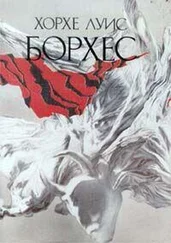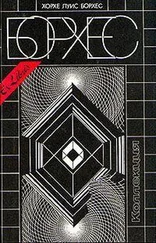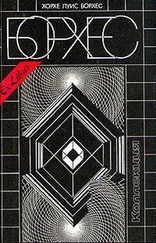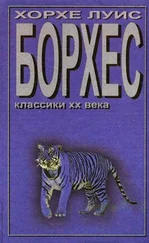Хорхе Борхес - Collected Fictions
Здесь есть возможность читать онлайн «Хорхе Борхес - Collected Fictions» весь текст электронной книги совершенно бесплатно (целиком полную версию без сокращений). В некоторых случаях можно слушать аудио, скачать через торрент в формате fb2 и присутствует краткое содержание. Год выпуска: 1999, ISBN: 1999, Издательство: Penguin (UK), Жанр: Старинная литература, на английском языке. Описание произведения, (предисловие) а так же отзывы посетителей доступны на портале библиотеки ЛибКат.
- Название:Collected Fictions
- Автор:
- Издательство:Penguin (UK)
- Жанр:
- Год:1999
- ISBN:9780140286809
- Рейтинг книги:5 / 5. Голосов: 1
-
Избранное:Добавить в избранное
- Отзывы:
-
Ваша оценка:
- 100
- 1
- 2
- 3
- 4
- 5
Collected Fictions: краткое содержание, описание и аннотация
Предлагаем к чтению аннотацию, описание, краткое содержание или предисловие (зависит от того, что написал сам автор книги «Collected Fictions»). Если вы не нашли необходимую информацию о книге — напишите в комментариях, мы постараемся отыскать её.
Collected Fictions — читать онлайн бесплатно полную книгу (весь текст) целиком
Ниже представлен текст книги, разбитый по страницам. Система сохранения места последней прочитанной страницы, позволяет с удобством читать онлайн бесплатно книгу «Collected Fictions», без необходимости каждый раз заново искать на чём Вы остановились. Поставьте закладку, и сможете в любой момент перейти на страницу, на которой закончили чтение.
Интервал:
Закладка:
His face, in the vivid circle of the lamp, was undoubtedly that of an old man, though with something indomitable and even immortal about it. He read with slow precision two versions of a single epic chapter. In the first, an army marches off to battle through a mountain wilderness; the horror of the rocks and darkness inspires in them a disdain for life, and they go on to an easy victory. In the second, the same army passes through a palace in which a ball is being held; the brilliant battle seems to them a continuation of the fête, and they win it easily.
I listened with honourable veneration to those ancient fictions, which were themselves perhaps not as remarkable as the fact that a man of my blood had invented them and a man of a distant empire was restoring them to me on an island in the West in the course of a desperate mission. I recall the final words, repeated in each version like some secret commandment: "Thus the heroes fought, their admirable hearts calm, their swords violent, they themselves resigned to killing and to dying."
From that moment on, I felt all about me and within my obscure body an invisible, intangible pullulation—not that of the divergent, parallel, and finally coalescing armies, but an agitation more inaccessible, more inward than that, yet one those armies somehow prefigured. Albert went on:
"I do not believe that your venerable ancestor played at idle variations. I cannot think it probable that he would sacrifice thirteen years to the infinite performance of a rhetorical exercise. In your country, the novel is a subordinate genre; at that time it was a genre beneath contempt. Ts'ui Pen was a novelist of genius, but he was also a man of letters, and surely would not have considered himself a mere novelist. The testimony of his contemporaries proclaims his metaphysical, mystical leanings—and his life is their fullest confirmation. Philosophical debate consumes a good part of his novel. I know that of all problems, none disturbed him, none gnawed at him like the unfathomable problem of time. How strange, then, that that problem should be the only one that does not figure in the pages of his Garden. He never even uses the word. How do you explain that wilful omission?"
I proposed several solutions—all unsatisfactory. We discussed them; finally, Stephen Albert said:
"In a riddle whose answer is chess, what is the only word that must not be used?"
I thought for a moment.
"The word chess,' " I replied.
"Exactly," Albert said. "The Garden of Forking Paths is a huge riddle, or parable, whose subject is time; that secret purpose forbids Ts'ui Pen the merest mention of its name. To always omit one word, to employ awkward metaphors and obvious circumlocutions, is perhaps the most emphatic way of calling attention to that word. It is at any rate, the tortuous path chosen by the devious Ts'ui Pen at each and every one of the turnings of his inexhaustible novel. I have compared hundreds of manuscripts, I have corrected the errors introduced through the negligence of copyists, I have reached a hypothesis for the plan of that chaos, I have reestablished, or believe I've reestablished, its fundamental order—I have translated the entire work; and I know that not once does the word 'time' appear. The explanation is obvious: The Garden of Forking Paths is an incomplete, but not false, image of the universe as conceived by Ts'ui Pen. Unlike Newton and Schopenhauer, your ancestor did not believe in a uniform and absolute time; he believed in an infinite series of times, a growing, dizzying web of divergent, convergent, and parallel times. That fabric of times that approach one another, fork, are snipped off, or are simply unknown for centuries, contains all possibilities. In most of those times, we do not exist; in some, you exist but I do not; in others, I do and you do not; in others still, we both do. In this one, which the favouring hand of chance has dealt me, you have come to my home; in another, when you come through my garden you find me dead; in another, I say these same words, but I am an error, a ghost."
"In all," I said, not without a tremble, "I am grateful for, and I venerate, your recreation of the garden of Ts'ui Pen."
"Not in all," he whispered with a smile. "Time forks, perpetually, into countless futures. In one of them, I am your enemy."
I felt again that pullulation I have mentioned. I sensed that the dew-drenched garden that surrounded the house was saturated, infinitely, with invisible persons. Those persons were Albert and myself—secret, busily at work, multiform—in other dimensions of time. I raised my eyes and the gossamer nightmare faded. In the yellow-and-black garden there was but a single man—but that man was as mighty as a statue, and that man was coming down the path, and he was Capt. Richard Madden.
"The future is with us," I replied, "but I am your friend. May I look at the letter again?"
Albert rose once again. He stood tall as he opened the drawer of the tall writing cabinet; he turned his back to me for a moment. I had cocked the revolver. With utmost care, I fired. Albert fell without a groan, without a sound, on the instant. I swear that he died instantly—one clap of thunder.
The rest is unreal, insignificant. Madden burst into the room and arrested me. I have been sentenced to hang. I have most abhorrently triumphed: I have communicated to Berlin the secret name of the city to be attacked. Yesterday it was bombed—I read about it in the same newspapers that posed to all of England the enigma of the murder of the eminent Sinologist Stephen Albert by a stranger, Yu Tsun. The Leader solved the riddle. He knew that my problem was how to report (over the deafening noise of the war) the name of the city named Albert, and that the only way I could find was murdering a person of that name. He does not know (no one can know) my endless contrition, and my weariness.
[1] A bizarre and despicable supposition. The Prussian spy Hans Rabener, alias Viktor Runeberg, had turned an automatic pistol on his arresting officer, Capt. Richard Madden. Madden, in self-defense, inflicted the wounds on Rabener that caused his subsequent death. [Ed. note.]
ARTIFICES
(1944)
Foreword
Although less clumsily executed, the stories in this volume are no different from those in the volume that precedes it. Two of them, perhaps, merit some comment: "Death and the Compass" and "Funes, His Memory." The second is one long metaphor for insomnia. The first, in spite of the Germanic or Scandinavian names in it, takes place in a Buenos Aires of dreams: the twisting "rue de Toulon" is the Paseo de Julio; "Triste-le-Roy" is the hotel where Herbert Ashe received, yet probably did not read, the eleventh volume of an imaginary encyclopedia. After this fiction was written, I thought it might be worthwhile to expand the time and space the story covers: the revenge might be bequeathed to others, the periods of time might be calculated in years, perhaps in centuries; the first letter of the Name might be uttered in Iceland, the second in Mexico, the third in Hindustan. Is there any need for me to say that there are saints among the Hasidim, and that the sacrifice of four lives in order to obtain the four letters that the Name demands is a fantasy dictated by the shape of my story?
Postscript, 1956. 1 have added three stories to this volume: "The South," "The Cult of the Phoenix," and "The End." Aside from one character, Recabarren, whose immobility and passivity serve as contrast, nothing (or almost nothing) in the brief course of that last story is of my invention—everything in it is implicit in a famous book, though I have been the first to perceive it, or at least to declare openly that I have. In the allegory of the Phoenix, I set myself the problem of suggesting a common act—the Secret—hesitatingly, gradually, and yet, in the end, unequivocally; I am not sure to what extent I have succeeded. Of "The South," which may be my best story, I shall tell the reader only that it is possible to read it both as a forthright narration of novelistic events and in quite another way, as well.
Читать дальшеИнтервал:
Закладка:
Похожие книги на «Collected Fictions»
Представляем Вашему вниманию похожие книги на «Collected Fictions» списком для выбора. Мы отобрали схожую по названию и смыслу литературу в надежде предоставить читателям больше вариантов отыскать новые, интересные, ещё непрочитанные произведения.
Обсуждение, отзывы о книге «Collected Fictions» и просто собственные мнения читателей. Оставьте ваши комментарии, напишите, что Вы думаете о произведении, его смысле или главных героях. Укажите что конкретно понравилось, а что нет, и почему Вы так считаете.
